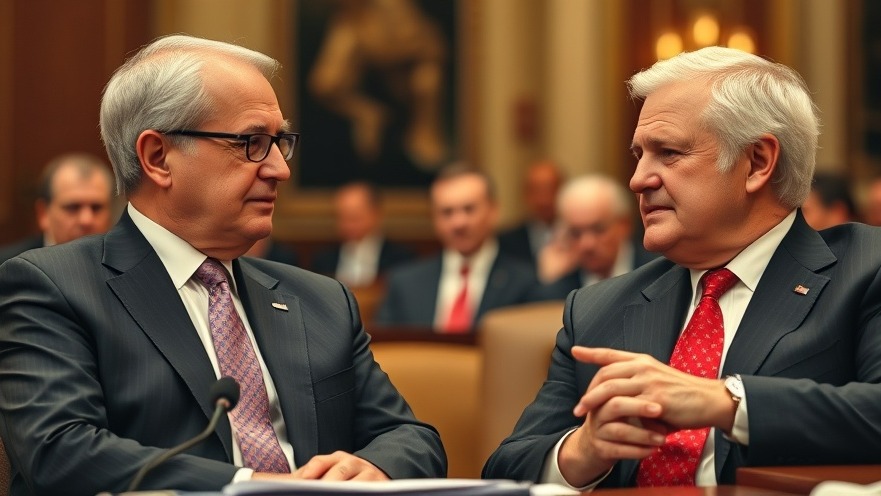
The Impact of Public Perception on Healthcare Leadership
In today's healthcare environment, trust is paramount. The recent incident involving Robert F. Kennedy Jr. highlights the delicate balance that health leaders must maintain between transparency and public trust. Accusations of unethical behavior, particularly those tied to the pharmaceutical industry, can not only jeopardize individual careers but can also diminish patient confidence in medical advice and practices. It’s crucial for healthcare providers, especially those in concierge medicine, to be aware of how political dynamics can influence public perception and their own practice.
Why Accountability Matters in Healthcare
Accountability is a crucial theme in the healthcare industry, especially after RFK Jr.’s questioning of Congressman Frank Pallone’s integrity due to alleged pharmaceutical contributions. This exchange brings to light how financial dealings can intertwine with healthcare decisions, affecting both policy and the care provided to patients. In concierge medicine, where patient trust forms the foundation of practice, ensuring transparency in financial relationships is vital. Providers should engage with patients about how these factors might influence their health recommendations, fostering a relationship built on trust and clear communication.
Building Trust Through Transparent Dialogues
Trust and open dialogue with patients should not be an afterthought; they must be integrated into medical practice. The episode with RFK Jr. shows that acrimony in public discussions can lead to a loss of credibility. Concierge practices thrive on strong relationships, and fostering an environment where patients feel safe to voice concerns is critical. Such environments allow practice owners to address misconceptions and clarify information actively, enhancing patient care and satisfaction.
Engaging Patients: How to Navigate Difficult Conversations
In light of public controversies, healthcare professionals should equip themselves with strategies to engage patients in meaningful conversations. Whether discussing the impact of pharmaceutical finances or navigating perceptions of vaccine safety, it’s important to create a space for dialogue. Techniques such as active listening, empathy, and shared decision-making can empower patients and enhance their trust in their healthcare providers. It’s also beneficial to provide resources that can help patients make informed choices without feeling pressured by societal narratives.
What Health Leaders Can Learn From RFK Jr.'s Oversight
RFK Jr.'s retraction of his statements serves as a powerful lesson on the importance of accountability in leadership. Health leaders need to remain vigilant about their statements and the potential repercussions those statements might have on their practice and the wider medical community. This not only involves refraining from unfounded accusations, but also being mindful of how their discourse influences patient perceptions. For concierge medical practices aiming for growth, understanding the ramifications of public statements and building ethical frameworks around communication is essential.
As healthcare providers, we have a responsibility to foster trust within our communities. This trust can wield significant influence over patient willingness to engage with healthcare services and adhere to medical advice. In the end, the aim remains clear: to provide exceptional, transparent care that prioritizes patients' well-being above all else.
To truly secure their standing as leading local concierge practices, healthcare owners must not only showcase their medical expertise but must also embrace transparent communication and ethical integrity in all their interactions. Making informed, compassionate decisions can strengthen their practice and ultimately lead to healthier patient outcomes.
 Add Row
Add Row  Add
Add 






Write A Comment